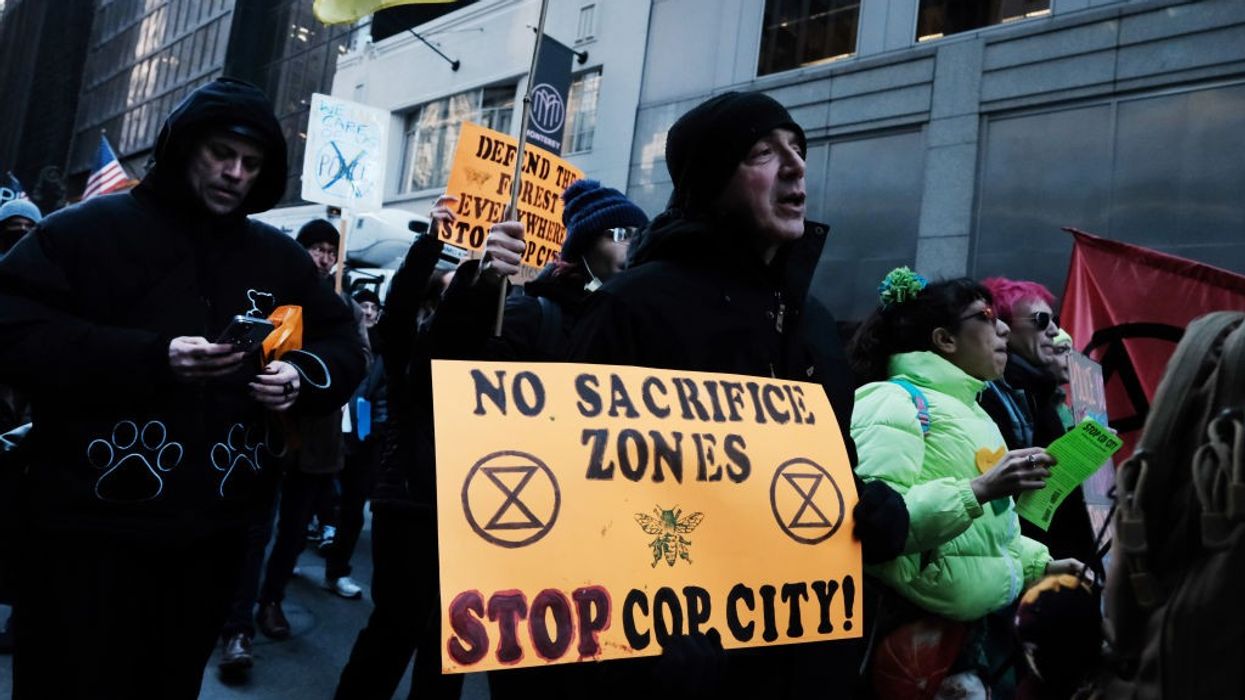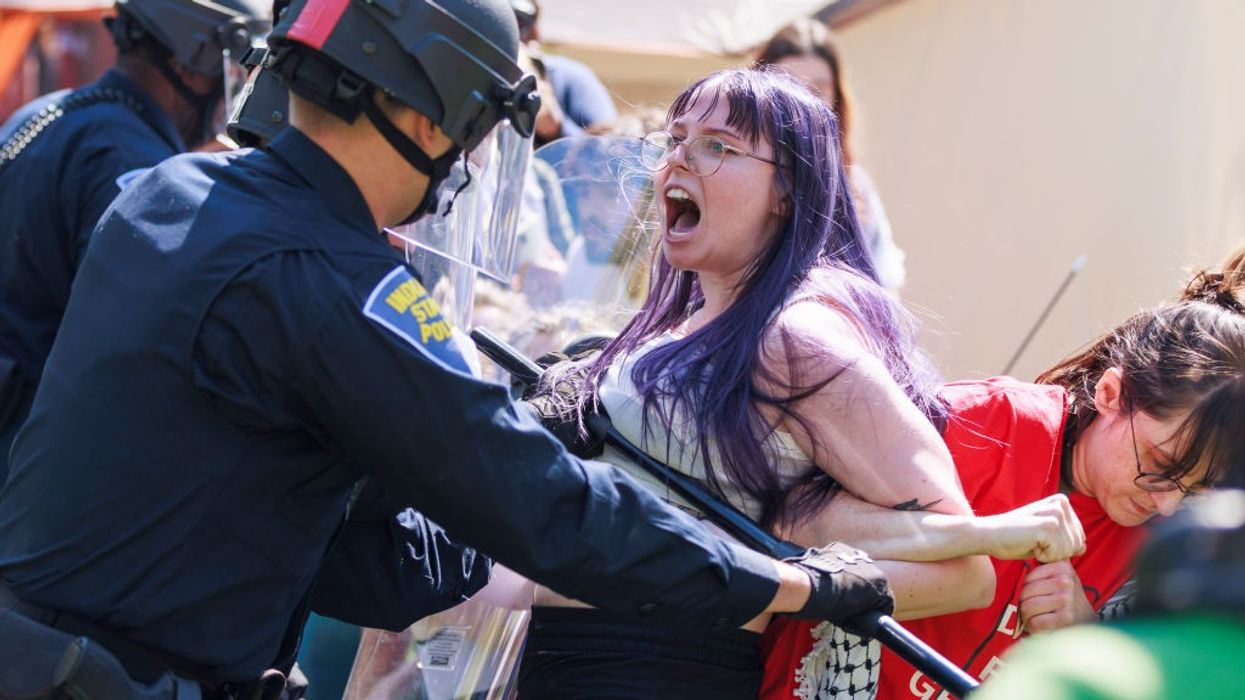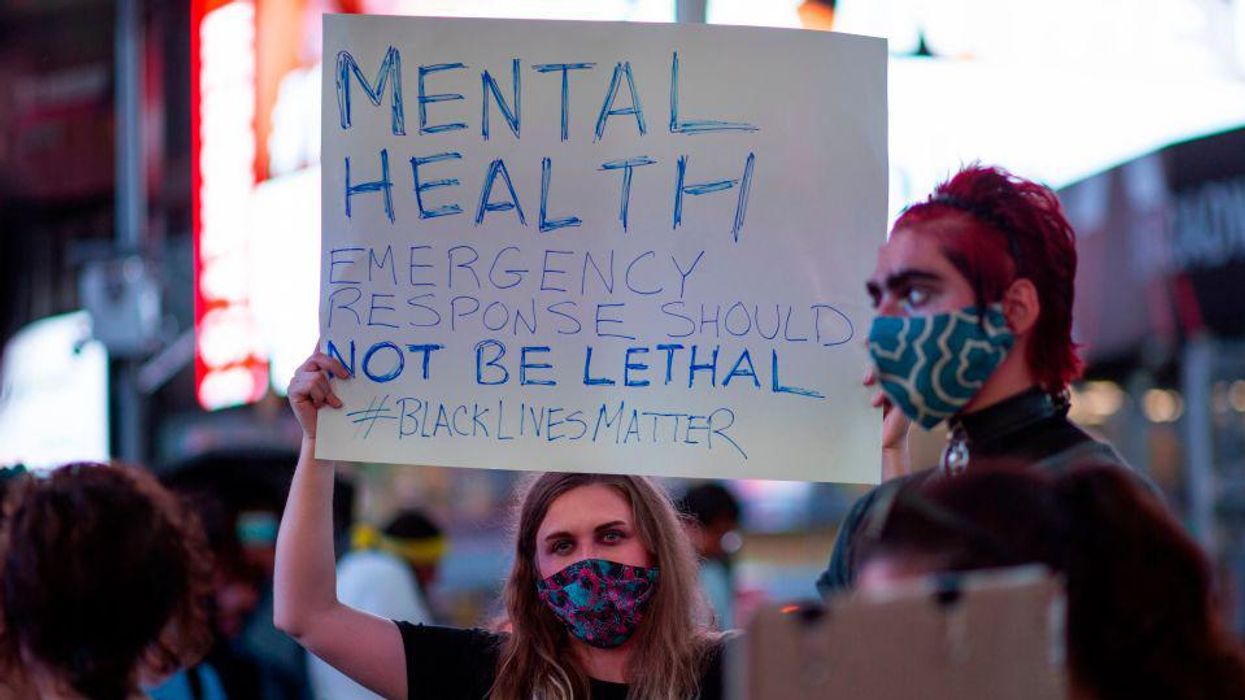Cop City Is A Disability Issue, and Disabled Organizers Must Fight To Stop It
In a society that prioritizes profits over people, disabled people are frequently marginalized and disposed of. Incarceration and police violence underscore the ways capitalism fails its most vulnerable.
Snce 2020, plans to build militarized police training facilities, also known as cop cities, have erupted across the country in an effort to maintain the status quo and quell political dissent from abolitionist and progressive organizers. As of July 2024, there are 80 projects either already being built or in the process of negotiating contracts to begin construction. Ten states have plans for multiple police compounds. The creation of these training facilities marks a new chapter of policing in the U.S.
Disability justice and disabled community organizers must be at the forefront of the nationwide movement to stop cop cities because this movement is a disability justice issue.
The movement to #StopCopCity emerged in the wake of nationwide uprisings in response to police killings of Black people, sparking critical conversations around the role of policing, the limits of police reform, community safety, and alternatives to the criminal legal system. Along with other organizations, I organized on the ground in Atlanta, where multiple police agencies used militarized tactics against community members. This occurred even as we mourned the loss of Rayshard Brooks, a member of our community who was killed by the Atlanta Police Department. All of this unfolded as we grappled with the profound impacts of a global pandemic—a mass-disabling event affecting countless lives.
We must listen to and follow the leadership of disabled people, especially those who are formerly or currently incarcerated.
Our collective grief transformed into action, fueling demands to end state-sanctioned violence and redirect investment into our communities. Our displays of solidarity angered and alarmed corporations, as well as local and national political establishments. In collaboration with major media outlets, those in power obscured the focus, reframing the narrative around rising crime rates and once again positioning police as the solution to our social, political, and economic challenges.
As a response to our organizing efforts, the city of Atlanta decided to build a $90 million complex equipped with military-grade facilities and a mock city for urban police training. If completed, this would be the country’s largest police training facility. Other municipalities have followed Atlanta’s misleadership. Cop city proposals have surfaced in Baltimore, Maryland; San Pablo, California; Fitchburg, Massachusetts; and Nashville, Tennessee all in response to demonstrations that took place in 2020. Meanwhile, other facilities have completed construction and are currently in operation like the cop cities in Semmes, Alabama; Fort Lauderdale, Florida; Decatur and Chicago, Illinois; and Madisonville, Kentucky.
In a society that prioritizes profits over people, disabled people are frequently marginalized and disposed of. Incarceration and police violence underscore the ways capitalism fails its most vulnerable. Disabled people are often excluded from discussions about the criminal legal system, resulting in limited and ineffective strategies for addressing the root causes of incarceration (e.g., poverty, racism, and capitalism).
The overrepresentation of people with disabilities in prisons and jails illustrates how victims of capitalism are locked up and harmed. Approximately 66% of incarcerated individuals in the U.S. report having a disability, while half of all people killed by police are disabled, with disabled Black Americans disproportionately affected. Even people without a disability who are locked up develop some sort of disability over the course of their imprisonment because the prison system is disabling.
Each year, an estimated 350 people with mental health diagnoses are killed by law enforcement, and individuals with psychiatric disabilities are 16 times more likely to be killed during police encounters. People like Anthony Hill, Sandra Bland, Eric Garner, Deborah Danner, Alfred Olango, Daniel Prude, Magdiel Sanchez, Freddie Gray, and countless others were all disabled people who were murdered by police.
These risks are even greater for people of color, women, trans folks, and LGBTQIA+ people. An alarming statistic reveals that by age 28, half of all disabled Black Americans have experienced arrest, underscoring the urgent need to address police violence and brutality as an intersectional issue that includes disability justice. These statistics will continue to rise as more Cop Cities are built, which will place BIPOC disabled individuals in closer proximity to police and increase their risk of harm.
The estimated budgets for these police training facilities are staggering; meanwhile police funding already consumes the majority of municipal budgets at the expense of essential social services. As police budgets grow, funding for education, direct services, infrastructure, and healthcare falls, leaving many—especially disabled individuals—without access to the resources they need. For example, Baltimore’s training facility is projected to cost $330 million; San Pablo, California estimates a $44 million facility, and Richmond, Kentucky, has a $28 million project budget.
Investing more in police departments does not create safer communities. Increased training does not address the root causes of violence. The safest communities are those that are well-resourced and have minimal police presence. Our communities deserve better.
The changing landscape of policing in the U.S. is increasingly characterized by international police exchange programs (also known as Deadly Exchange programs), which expose officers to new surveillance methods, military tactics, and forms of political repression from countries with notorious human rights abuses.
The Georgia International Law Enforcement Exchange (GILEE) program in Atlanta sends U.S. officers to train with the Israeli Occupation Forces (IOF), who are responsible for the ongoing genocide of Palestinians. The IOF conducts urban warfare training in a mock city called "Little Gaza," a replica of the Gaza Strip designed to simulate combat scenarios. These practices serve as the blueprint for cop cities across the U.S.
In Baltimore, an Amnesty International report found that the Baltimore Police Department’s participation in deadly exchange programs with Israel contributed to “widespread constitutional violations, discriminatory enforcement, and a culture of retaliation.” However, more police departments are participating in deadly exchange programs. Police officials from states including Florida, New Jersey, Pennsylvania, Arizona, Connecticut, Massachusetts, North Carolina, Washington, and D.C. have also trained with Israeli paramilitary forces.
Israel, a nation responsible for the killing and disabling of hundreds of thousands of Palestinians, serves as the model for these military complexes. These tactics will disproportionately impact marginalized communities domestically and amplify surveillance and repression in already vulnerable areas. Disability Justice involves liberating Palestinians from the disabling effects of genocide.
Climate change is deeply connected to the issues of cop cities and disability justice. Projects like those in Atlanta and Nashville involve clearing large areas of urban forest, causing severe environmental harm. For example, Atlanta’s urban forest, which protects communities from flash flooding, has already been compromised, leading to increased flooding across the city. Such environmental degradation worsens health conditions for disabled people, leaving them to face the consequences with little support, as we saw during disasters like Hurricane Helene. This situation will only deteriorate further.
What is to be done?
The phrase “death by a thousand cuts” reminds us that there is no single solution to combat social injustice in this country. Addressing these challenges requires a diversity of tactics and a shared commitment to building a better world. Everyone has a role to play in movement work—whether it’s cooking for comrades, taking meeting notes, providing childcare so others can participate, or conducting research on targets. Every action, big or small, adds up, creating momentum when combined with the efforts of others. There is a place for you; come find it.
We must listen to and follow the leadership of disabled people, especially those who are formerly or currently incarcerated. Those directly impacted by oppressive systems possess invaluable knowledge of how these systems function and must be at the forefront of our movements. Yes, that means building relationships with people currently incarcerated.
It’s equally critical to learn from past campaigns, both their victories and setbacks. For example, the 2017 #NoCopAcademy campaign in Chicago, which sought to stop the construction of a police training facility, illustrates how grassroots organizing can achieve tangible wins. While the facility was ultimately built, organizers succeeded in cutting $21 million from school policing budgets, a significant step toward redistributing resources.
A new world is emerging, whether we are ready for it or not. It’s up to all of us to prepare and take action to shape what comes next. Liberation is possible, but we need you to make it a reality.


